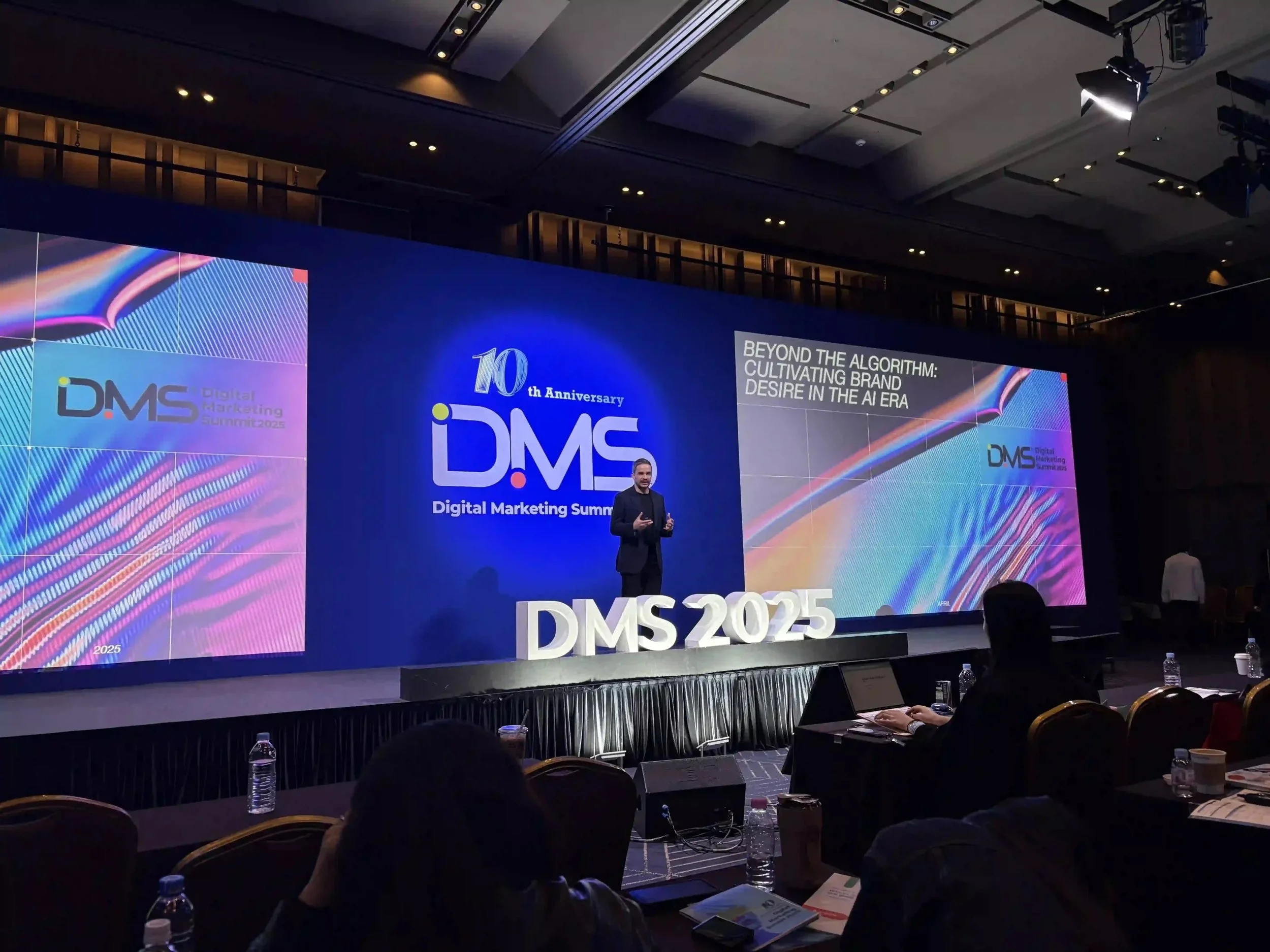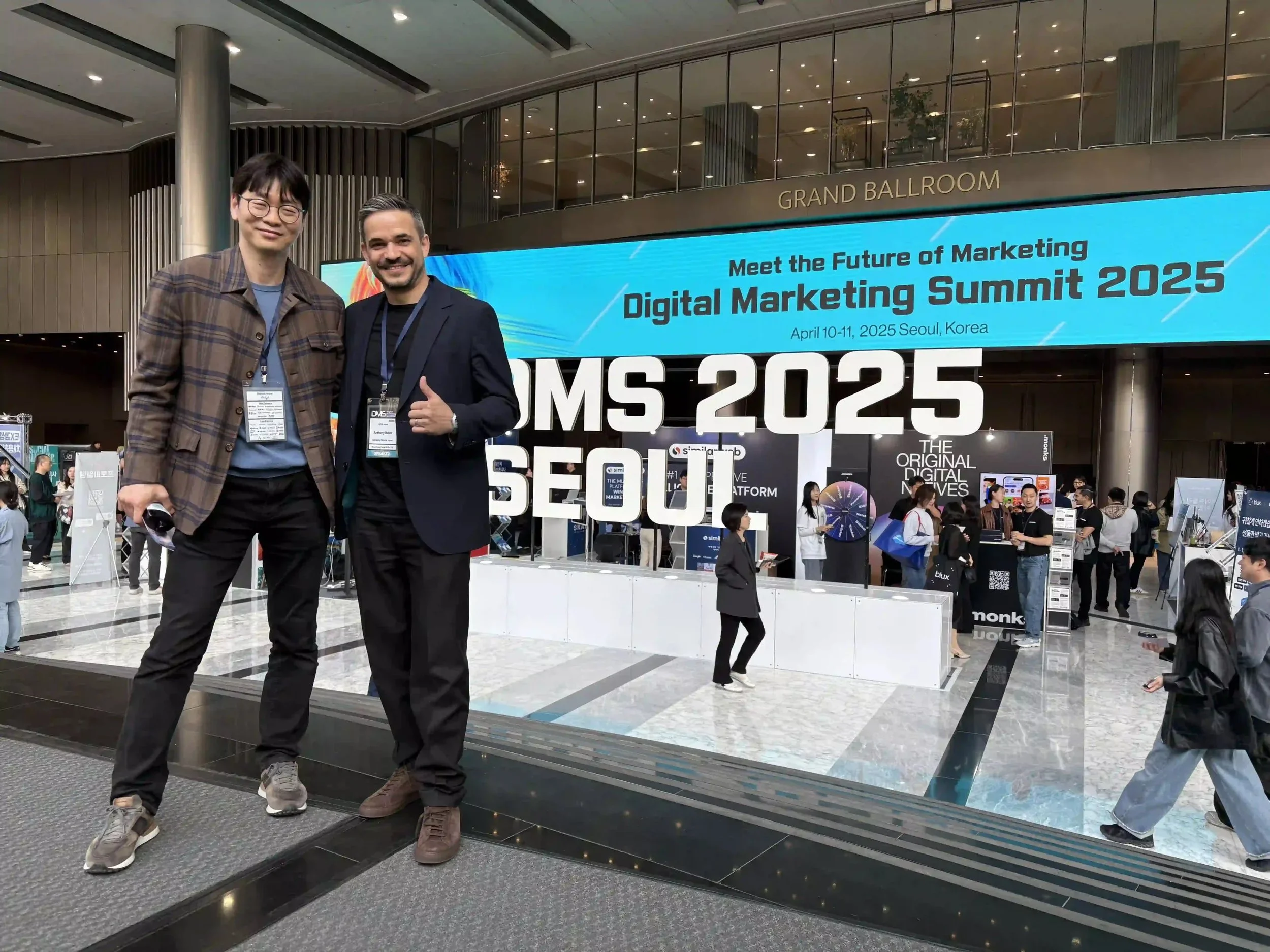Q&A: Anthony Baker on Why Brands Must Become More Human in the Age of AI
This article was first published in Branding in Asia on May 14th, 2025
At the recent 2025 Digital Marketing Summit in Seoul, there was a presentation in particular that stood out for me: a talk by Anthony Baker, Managing Director of R/GA Japan.
Titled “Beyond the Algorithm: Cultivating Brand Desire in the AI Era,” his presentation challenged the audience to reconsider what matters in the age of AI. He spoke about the rising importance of emotional resonance, cultural relevance, and the human core of brand experience.
After the session, I sat down with him to explore his thinking further—and to discuss how brands can stay meaningful in a world increasingly shaped by machines, and what it means to cultivate brand desire in the AI era, beyond the algorithm.
You said marketing today must move beyond creating demand—it must create desire. That’s a powerful shift. But desire is a more intimate, emotional territory. What do you believe is the first question a brand must ask to truly spark desire in people?
Brands must start with clarity. Who are we? Why do we exist? Without clear answers to those questions, even the most sophisticated campaigns fall flat.
People today respond not just to what a brand sells—but to what it stands for. Brands must examine how their messages align with real human values, beliefs, and aspirations. It’s no longer a game of features and benefits. It’s about meaning and relevance.
You drew a line between optimization and elevation—saying brands are trapped in a numbers game. If that’s true, what’s being lost? And what exactly does “elevation” look like in action?
Optimization is necessary—but not sufficient. Brands obsessed with clicks, conversions, and ROAS risk losing the soul of what they do. People don’t remember you for your numbers. They remember how you made them feel.
Elevation means building emotional meaning on top of the data. It’s not about better performance—it’s about a deeper connection
Elevation means building emotional meaning on top of the data. It’s not about better performance—it’s about a deeper connection. Brands must ask: What do we add to people’s lives beyond utility?
You mentioned that in the AI era, loud doesn’t equal relevant. Only meaningful brands make it into the algorithm’s recommendation set. What does a “meaningful brand” look like to you—and how does that meaning register through AI?
A meaningful brand, to me, is a connected brand. Its foundation may be technology, design, and storytelling, but it’s true power lies in meeting people on a human level—understanding their emotions, motivations, and interests. Without that emotional lens, even the most polished execution won’t resonate or endure.
Take Nike: it’s not just about sneakers—it’s about courage, challenge, and personal growth. That meaning isn’t accidental; it’s the result of consistent actions, emotional storytelling, and brand utility over time. Algorithms learn from human behavior.
As AI gets smarter, people crave humanity even more. Humor, honesty, imperfection, empathy—those are the ingredients of emotional resonance.
In an AI-driven world, algorithms learn from what people care about. They reward what’s resonant and relational—not just what’s loud. So, if a brand doesn’t make someone feel something, it simply doesn’t register. In this new era, meaning is the new media spend.
You emphasized cultural relevance. But many global brands miss the mark by relying on translation or local celebrities. What does it really take to earn resonance in local markets like Korea?
Great global brands listen. Korean consumers are sharp—they can sense when something’s just a surface-level adaptation. Brands need to empower local teams, study cultural nuances, and embed authenticity.
You can’t fake local relevance. You earn it through real understanding, real stories, and real connection.
AI enables prediction, automation, and efficiency. But you emphasized the irreplaceable power of emotional resonance. What can brands do—practically—to build more emotional impact into their experiences?
See every touchpoint as an emotional stage. It’s not about just one ad. It’s the packaging, the UX, the tone of a support call—everything. That’s your brand. Also, embrace human texture.
Don’t fall in love with the tech. Fall in love with the problem. Start with: “What human challenge are we solving?” If your tech doesn’t answer that, it’s just noise.
As AI gets smarter, people crave humanity even more. Humor, honesty, imperfection, empathy—those are the ingredients of emotional resonance. Machines can mimic behavior. But they can’t create warmth.
AI, data, and digital tools are essential—but not the whole picture. How should marketers frame their mindset to use these tools responsibly and creatively?
Don’t fall in love with the tech. Fall in love with the problem. Start with: “What human challenge are we solving?” If your tech doesn’t answer that, it’s just noise. Technology should extend imagination, not replace it. When used with intention, tech becomes a bridge—not a barrier—to human connection.
One word: Experiment. Don’t wait for perfection. Try things. Break things. Learn fast. AI and platforms are evolving daily.
What would you say to young marketers and creatives in Korea facing this AI-driven, hyper-digital world? What mindset should they carry?
One word: Experiment. Don’t wait for perfection. Try things. Break things. Learn fast. AI and platforms are evolving daily. Your ideas, no matter how small, can now travel globally. Creativity is no longer about scale—it’s about impact. Make something that matters. And stay curious.
Final Thoughts
After this conversation, I walked away reminded of one core truth:
No matter how advanced the technology becomes, it’s still human emotion that moves brands forward.
He challenges us not to hide behind metrics, but to stand for something.
He reminds us that meaning isn’t manufactured—it’s earned.
And he leaves us with a question that every marketer should ask themselves:
Will people remember our work for what it did, or how it made them feel?
If the answer is the latter, then we’ve built a brand that algorithms can’t replicate—because it lives in the human heart.


